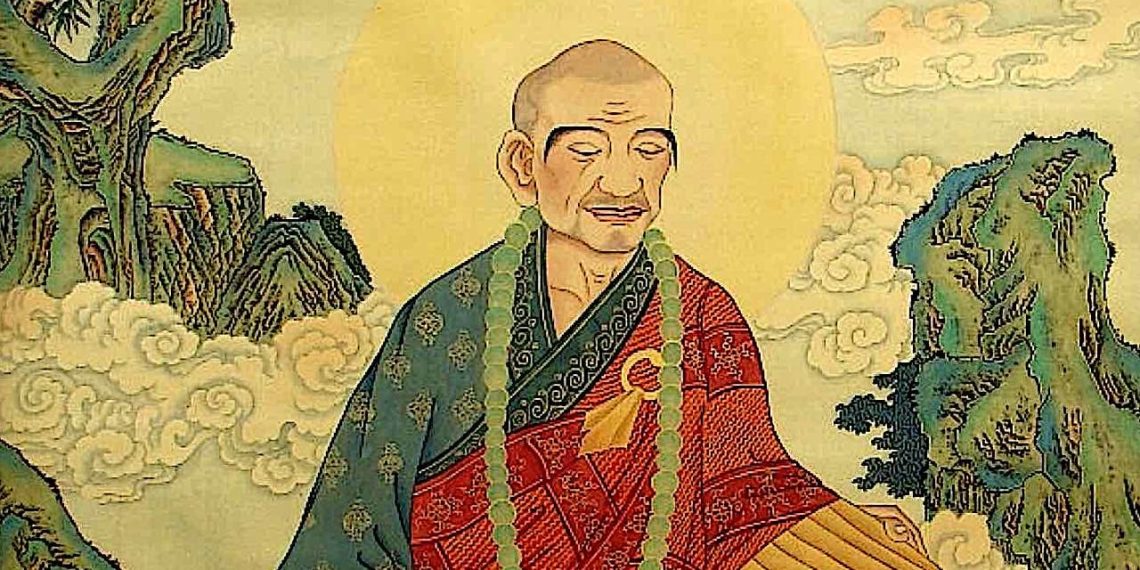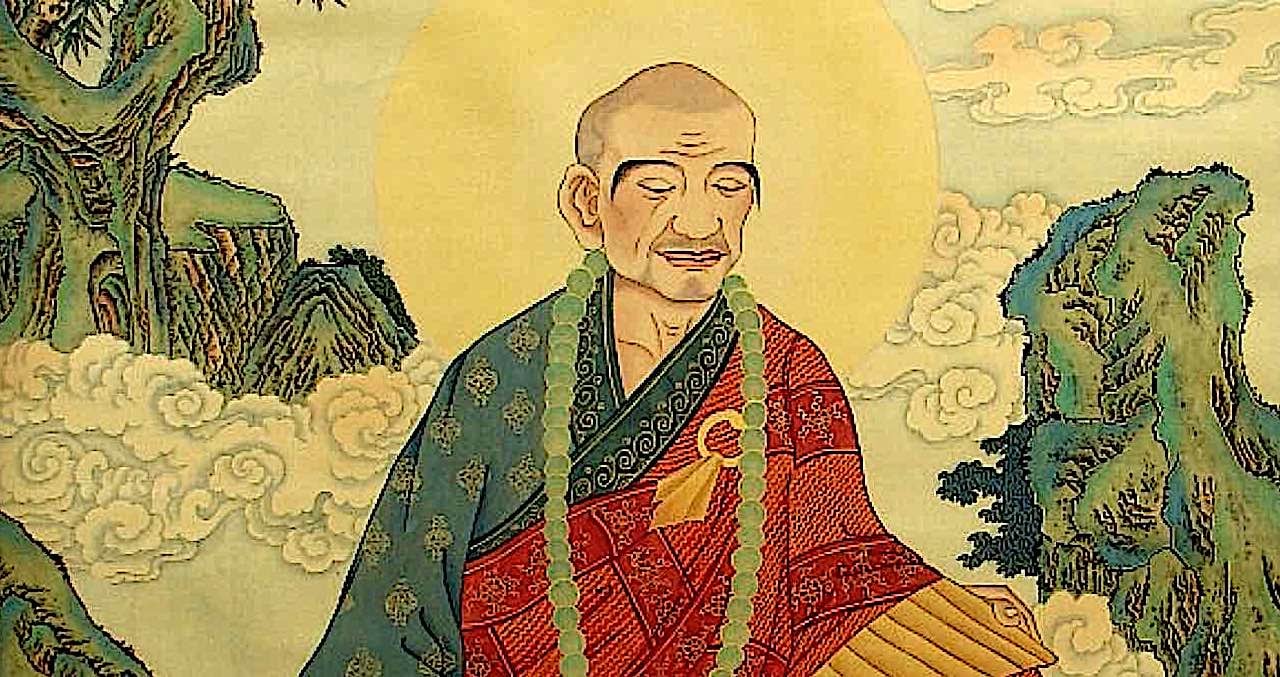
Logic has always held a prominent place in the realm of Buddhist studies, creating an intellectual bridge between spiritual pursuit and scientific curiosity. One figure who looms large in this intricate interplay is Vasubandhu, an eminent Buddhist scholar-monk of the 4th or 5th century CE.
Born in Gandhara, now in modern-day Pakistan, Vasubandhu’s intellectual prowess and vast contributions spanned a range of disciplines. His commentaries, treatises, and texts reveal a meticulous analytical mind that sought to understand and elucidate the profound teachings of Buddhism. His interpretations and explanations of Buddhist philosophy, particularly his contributions to the development of Buddhist logic, make him a pivotal figure within the pantheon of Buddhist thought leaders.
Moving deeper into the sphere of Buddhist intellectual tradition, it is important to grasp the concept of Buddhist logic and the Five Sciences, as these frameworks shaped much of Vasubandhu’s work. Buddhist logic, also referred to as Buddhist epistemology, is a discipline that studies the nature and origin of knowledge, probing into what constitutes truth and how we come to know it. It is a methodical system that clarifies the rules of thought, enabling one to distinguish between valid and invalid reasoning.
The Five Sciences, originally sourced from Indian intellectual traditions and later incorporated into Buddhist monastic curriculum, include the studies of arts and craftsmanship, medicine, linguistics, logic, and inner knowledge. These sciences offer a comprehensive worldview, nurturing both worldly and spiritual proficiency. Logic or ‘hetu-vidya’, known as the ‘science of causes’, is of particular significance as it forms the philosophical backbone of Buddhist reasoning.
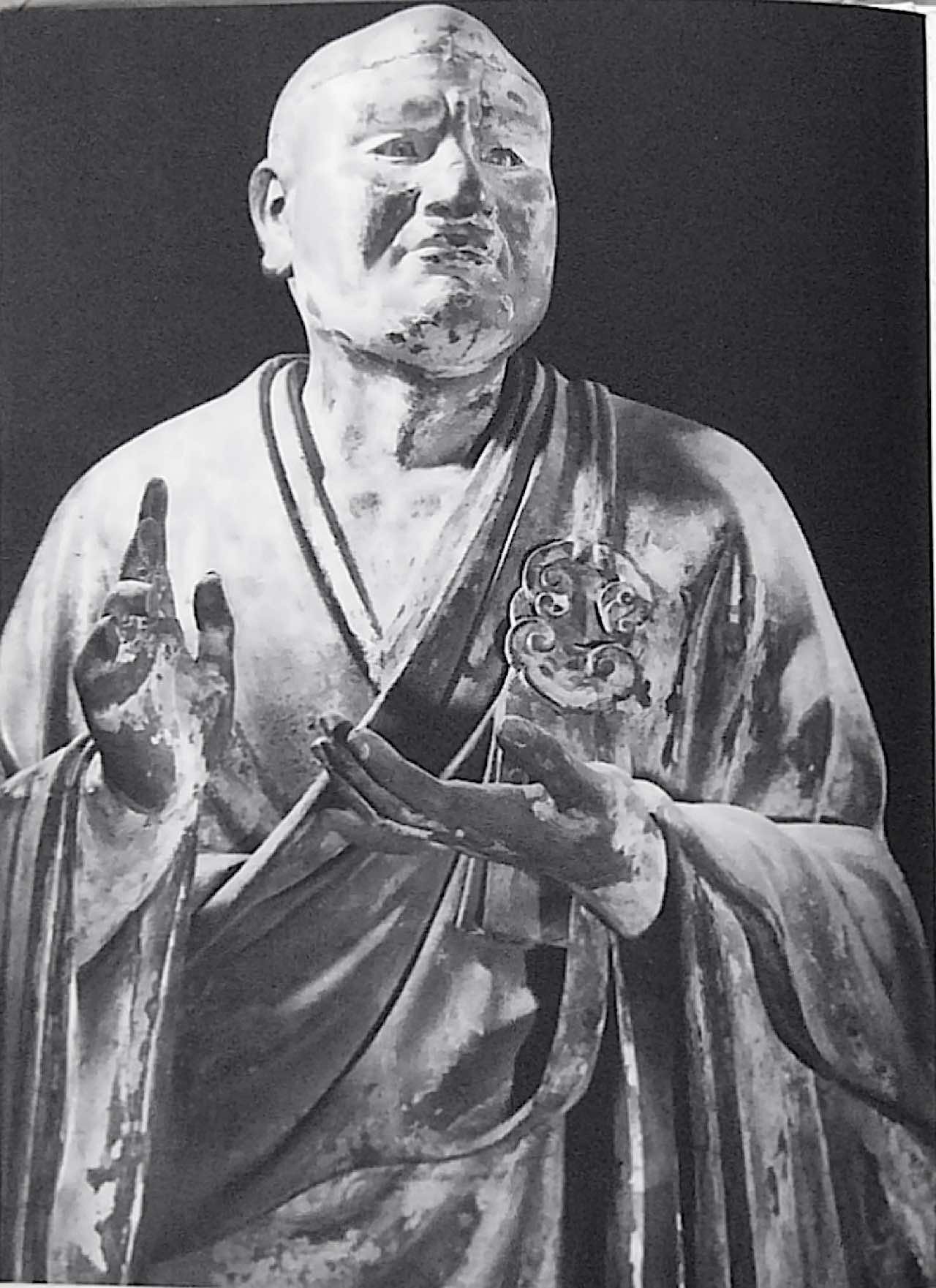
Vasubandhu’s work provides a vast canvas where Buddhist logic and the Five Sciences are explored and interwoven. This exploration not only illuminates these disciplines but also gives us a unique insight into the mind of one of Buddhism’s greatest logicians. As we delve into Vasubandhu’s life and works, we uncover the profound depth of his contribution to Buddhist philosophy and the wider intellectual landscape.
The Life and Times of Vasubandhu
Before delving into Vasubandhu’s profound contributions to Buddhist logic, it’s essential to understand the journey that shaped his intellectual and spiritual evolution. Vasubandhu’s life journey is a testament to his relentless pursuit of knowledge, wisdom, and enlightenment. Here, we explore his early life, journey to Buddhism, and the major influences that culminated in his remarkable contributions to Buddhist philosophy.
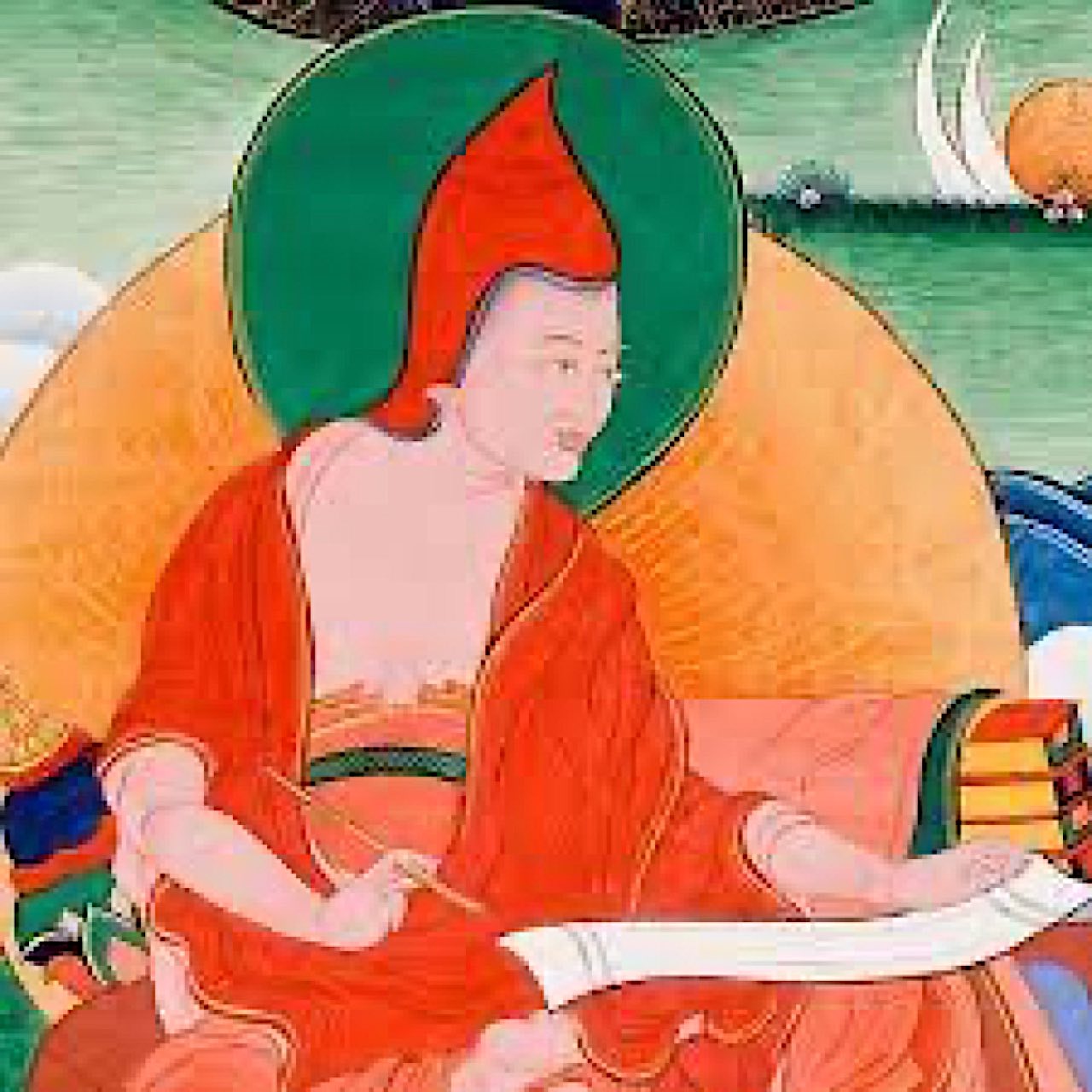
Early Life
Born in the Gandhara region of ancient India, an area known today as modern Pakistan, Vasubandhu’s journey began amidst a rich cultural and intellectual landscape. The exact dates of his birth and death remain uncertain, but it is generally accepted that he lived during the 4th or 5th century CE.
His early life was marked by a deep intellectual curiosity, nurtured by the vibrant intellectual climate of his time. Raised in a Brahmin family, Vasubandhu, along with his half-brother Asanga, was introduced to various philosophical and religious doctrines at an early age. This early exposure to diverse systems of thought was instrumental in shaping his intellectual development, laying the groundwork for his future endeavors.
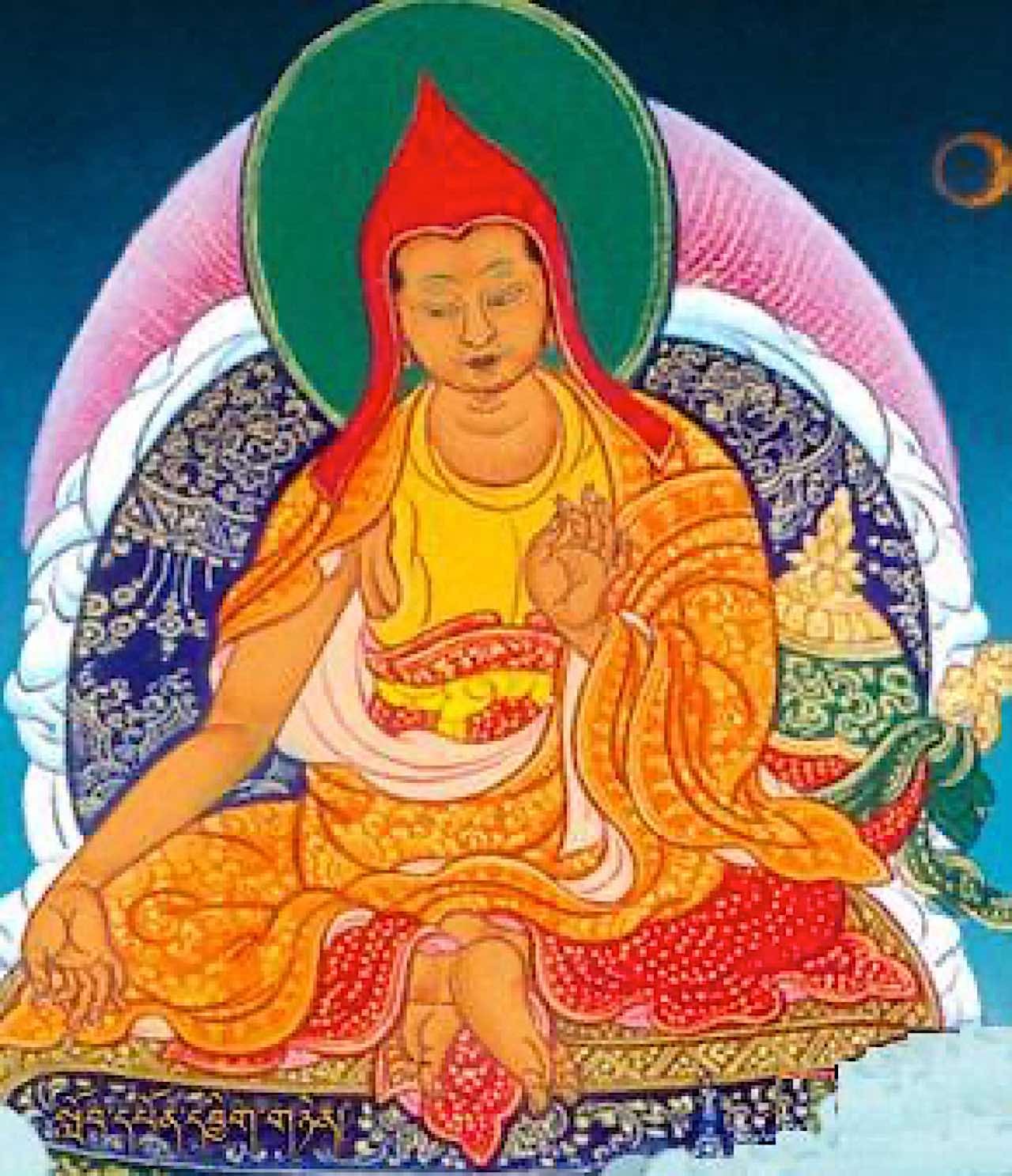
Journey to Buddhism
Vasubandhu’s journey to Buddhism was a complex and transformative one. Despite his Brahmin roots, he was attracted to the teachings of Buddhism, finding in them an unparalleled depth and richness. His initial adherence to the Theravada tradition evolved into a profound interest in the Mahayana teachings under the influence of his half-brother, Asanga, who was already a well-known Mahayana scholar. This shift is considered a significant turning point in his spiritual journey, as it led to his rigorous exploration of Mahayana principles and the writing of numerous treatises that elucidated these teachings.
Major Influences and Contributions
Vasubandhu’s scholarly work was highly influenced by the major Buddhist doctrines of his time, especially Abhidharma and Yogacara, the latter being a significant school of Mahayana Buddhism. The doctrines of these schools provided a fertile ground for his intellectual exploration, inspiring many of his philosophical treatises.
Among his most noteworthy contributions is the ‘Abhidharmakosha’, an encyclopedic work on Abhidharma, that gained wide acceptance in Buddhist communities both within and beyond India. This text is a testament to his comprehensive understanding of Theravada teachings, which he had initially studied.
His exploration into the Yogacara philosophy resulted in several significant treatises that have had a lasting impact on Buddhist thought. Of these, the ‘Trimshika’ and the ‘Vijnaptimatrata-siddhi’ stand out, with the latter discussing the concept of “consciousness-only” and asserting that external objects do not exist apart from consciousness.
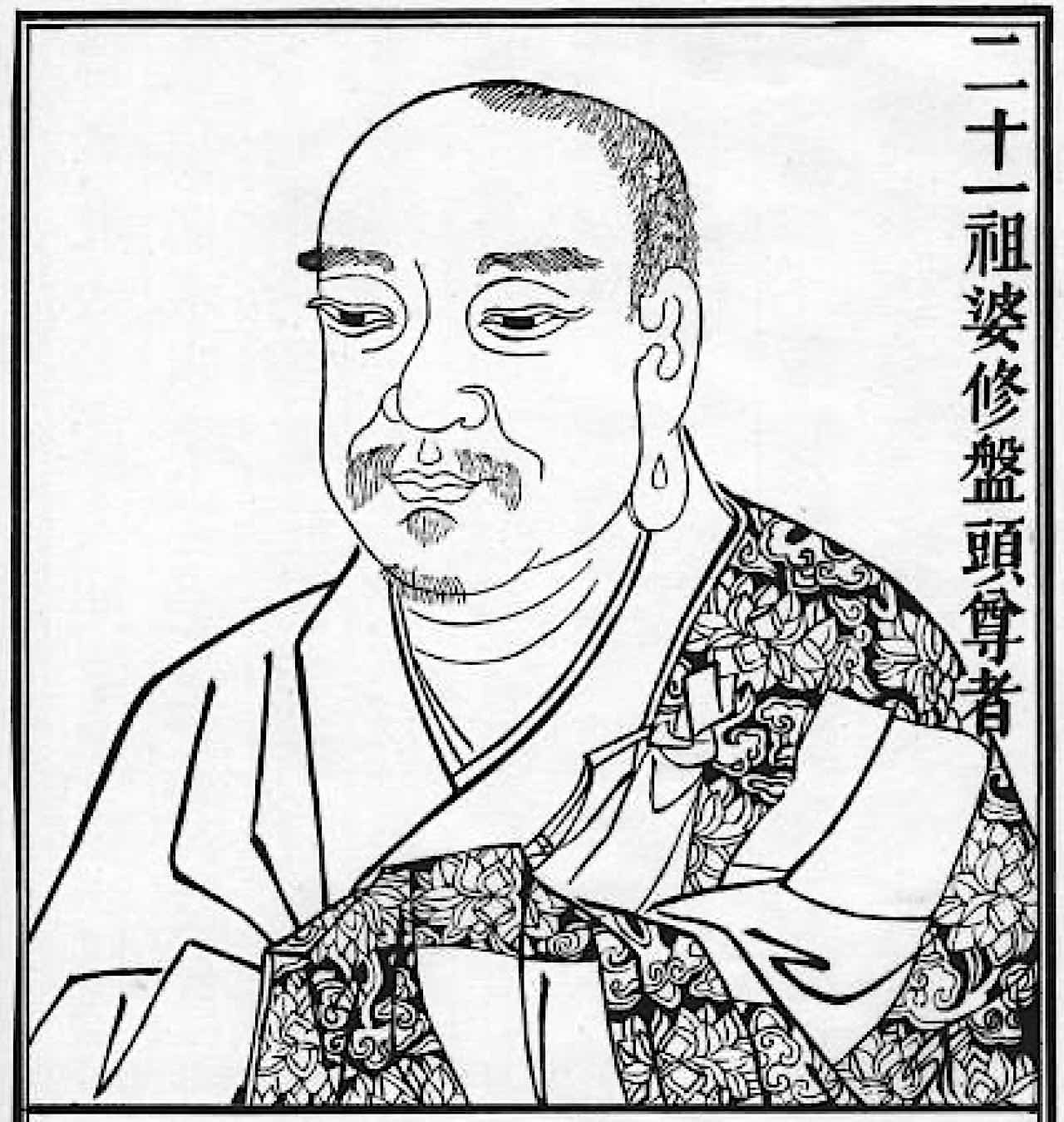
Vasubandhu’s writings serve as a testament to his intellectual prowess and his profound understanding of the intricate tapestry of Buddhist philosophy. His works have left a lasting impact on Buddhist thought, showcasing the depth of his inquiry into the nature of existence and knowledge.
Vasubandhu and the Five Sciences
Vasubandhu’s life work is an extensive canvas, but his interpretations of the Buddhist Five Sciences stand out as being most notable indeed. His unique interpretations enriched these traditional disciplines, forging a link between worldly knowledge and spiritual understanding. Let’s delve into Vasubandhu’s perspective on the Five Sciences and their implications for Buddhist philosophy.
Overview of the Five Sciences
The Five Sciences, known as the ‘Pancha Vidya’, form an integral part of Buddhist education. Rooted in ancient Indian intellectual traditions, they were adopted into Buddhist curriculum to provide a well-rounded education. These sciences encompass the arts and craftsmanship (silpakarmasthan), medicine (cikitsavidya), linguistics (sabdavidya), inner knowledge (adhyatmavidya), and logic or ‘hetu-vidya’. Together, they foster a balanced understanding of the world, combining practical skills with profound spiritual insight.
Vasubandhu’s Interpretation of the Five Sciences
Vasubandhu’s interpretation of the Five Sciences was instrumental in bridging the gap between secular knowledge and spiritual wisdom. In his understanding, these sciences were not disjointed realms of knowledge but interconnected aspects of a comprehensive understanding of reality.
In his exposition of the arts and craftsmanship, Vasubandhu emphasized the need for mindfulness in all forms of human activity, recognizing the spiritual potential inherent in creativity. Medicine, for him, was not merely a science of bodily health, but a holistic approach that encompassed the wellness of mind and spirit.
Linguistics, in Vasubandhu’s perspective, was not just a tool for communication but a means to understand the nature of reality, as words shape our perception of the world. Inner knowledge, according to Vasubandhu, referred to the introspective understanding of the self, crucial to the process of spiritual liberation.
Logic or ‘hetu-vidya’ held a special place in Vasubandhu’s heart. He saw it as the key to discerning the truth and dispelling ignorance, making it an invaluable tool in the path to enlightenment.
Implications for Buddhist Philosophy
Vasubandhu’s unique interpretation of the Five Sciences has had far-reaching implications for Buddhist philosophy. His comprehensive and holistic approach created a synthesis between the secular and the sacred, thereby grounding Buddhist philosophy in the realities of everyday life.
His exposition of arts and craftsmanship emphasized the spiritual potential inherent in human creativity, while his understanding of medicine as a holistic science underlined the interconnectedness of mind, body, and spirit.
Vasubandhu’s view of linguistics affirmed the power of language in shaping our perception of reality, and his emphasis on inner knowledge placed self-understanding at the core of spiritual liberation.
Most significantly, his focus on ‘hetu-vidya’ highlighted the crucial role of logical reasoning in Buddhist philosophy, establishing it as an invaluable tool in the pursuit of truth. Vasubandhu’s approach to the Five Sciences served to enrich the fabric of Buddhist philosophy, weaving together the threads of worldly knowledge and spiritual wisdom.
Hetu-vidya: Vasubandhu’s Doctrine of Proof
One of Vasubandhu’s most significant contributions to Buddhist philosophy was his exploration of hetu-vidya, or the science of causes. His insights into this field of study have shaped the way Buddhist logic is understood and applied, both in philosophical discourse and practical life. Here, we will unpack the concept of hetu-vidya, explore Vasubandhu’s interpretation, and reflect on its relevance in contemporary Buddhism.
The Concept of Hetu-vidya
Hetu-vidya, also known as the science of causes, represents one of the Five Sciences and holds a special place within Buddhist logic. It explores the principles of reasoning and logical inference, forming the basis of sound argumentation and philosophical discourse. The purpose of hetu-vidya is not to engage in contentious debates but to enable a deeper understanding of the truths propounded by Buddhism.
This branch of knowledge delineates the rules of valid reasoning, examining the relationships between cause and effect, conditions, and consequences, and it provides the means to distinguish between valid and fallacious arguments. As such, hetu-vidya acts as a compass, guiding the Buddhist practitioner through the complexities of philosophical understanding and towards the discernment of truth.
Vasubandhu’s Interpretation and Contributions
Vasubandhu’s exploration of hetu-vidya yielded significant contributions to the development of Buddhist logic. He provided a comprehensive commentary on this science, deepening its understanding and expanding its application within Buddhist discourse. His systematic approach to logical reasoning laid the groundwork for his doctrine of proof.
His most remarkable work in this context is the ‘Vada-nyaya’, a treatise where he expounded on the principles of debate and logical argumentation. Vasubandhu outlined the components of a valid argument, the criteria for logical proof, and the pitfalls of erroneous reasoning. He also addressed the role of logical reasoning in understanding and interpreting Buddhist doctrine, asserting that intellectual understanding and spiritual realization were not separate but intimately connected aspects of the path to enlightenment.
In his examination of cause-and-effect relationships, Vasubandhu offered a nuanced understanding of dependent origination, a core principle of Buddhism, weaving together the strands of logic and metaphysics. His interpretations not only enriched the philosophical discourse but also provided practical tools for Buddhist practitioners, making his contributions invaluable to the tradition.
The Relevance of Hetu-vidya in Contemporary Buddhism
The relevance of hetu-vidya in contemporary Buddhism cannot be overstated. In a world marked by a myriad of beliefs and ideologies, the science of causes serves as a guiding light, enabling practitioners to navigate through complex philosophical terrain and arrive at a clearer understanding of Buddhist teachings.
Vasubandhu’s exposition of hetu-vidya continues to influence Buddhist scholars and practitioners, providing a robust framework for interpreting and understanding the profound truths of Buddhism. His meticulous examination of logical reasoning and proof offers a scientific approach to spiritual inquiry, thus appealing to the modern mind.
Moreover, his emphasis on the union of intellectual understanding and spiritual realization aligns with the contemporary perspective that sees spirituality and science as complementary, rather than conflicting, paths to truth. This harmony echoes in the growing interest in mindfulness and meditation practices, as these practices are increasingly recognized for their capacity to bring about a transformative understanding of oneself and the world.
In essence, Vasubandhu’s approach to hetu-vidya, his doctrine of proof, provides a timeless roadmap that continues to guide contemporary Buddhism in its quest for truth and enlightenment.
Vasubandhu’s Legacy in Modern Buddhist Practice
The influence of Vasubandhu extends beyond his time, leaving an indelible mark on modern Buddhist practice. His teachings and philosophical insights continue to inspire and guide Buddhist thought, logic, and education. Let’s examine how Vasubandhu’s interpretations of Buddhist logic and the Five Sciences continue to impact Buddhist philosophy and education today.
Influence on Buddhist Logic and Philosophy
The intellectual legacy of Vasubandhu reverberates through the corridors of modern Buddhist logic and philosophy. His nuanced understanding of Buddhist doctrines, coupled with his profound contributions to the development of Buddhist logic, particularly hetu-vidya, has shaped much of the contemporary understanding of these disciplines.
His works remain an integral part of Buddhist studies, offering scholars and practitioners a rich repository of wisdom to delve into. In many ways, Vasubandhu’s work has helped bridge the gap between traditional Buddhist thought and contemporary intellectual perspectives, fostering a dialogue between ancient wisdom and modern inquiry.
Vasubandhu’s Impact on Buddhist Education
Vasubandhu’s impact extends beyond philosophical discourse to the sphere of Buddhist education. His interpretation of the Five Sciences and his emphasis on hetu-vidya continue to inform the curriculum of Buddhist monastic education and lay teachings. Vasubandhu’s approach, integrating secular knowledge with spiritual insight, represents an educational paradigm that fosters holistic development.
This has encouraged many Buddhist institutions to follow a similar approach, thereby perpetuating Vasubandhu’s legacy. Furthermore, his methodical exploration of logical reasoning and proof, detailed in works like ‘Vada-nyaya’, are key texts for those studying Buddhist philosophy, contributing greatly to the depth and breadth of Buddhist educational material.
Reflecting on the Harmony of Logic and Spirituality
As we conclude this exploration into Vasubandhu’s life and teachings, we are compelled to reflect on the profound harmony he instilled between logic and spirituality, a synchrony that echoes the essence of the Scientific Buddhist’s pursuit. His journey, laden with philosophical inquiries and spiritual realizations, tells a timeless tale of seamless integration between rigorous intellectual pursuits and empathetic understanding of the human experience.
Vasubandhu’s teachings, particularly his intricate explorations of hetu-vidya and the Five Sciences, serve as a beacon for the Scientific Buddhist. They illuminate the path to a deeper understanding of existence, offering a detailed map that expertly blends scientific inquiry with spiritual introspection. The balance he struck between these two seemingly disparate domains is a testament to his genius and the enduring value of his contributions to Buddhist philosophy.
In his dedication to truth, logic, and enlightenment, Vasubandhu has shown that intellectual rigor and spiritual pursuit are not just compatible but are indeed integral to each other. He exemplified how, in the quest for truth and enlightenment, spirituality and logic can walk hand in hand, enriching and illuminating each other.
Vasubandhu’s life, teachings, and enduring legacy remind us that in the complex dance of existence, the steps of logic and spirituality are beautifully synchronized. His example serves as an enduring inspiration, providing a timeless resource for those seeking to navigate the intricate landscape of Buddhist philosophy through the lens of the Scientific Buddhist. His teachings, reverberating through the centuries, invite us to see the unity in diversity, the harmony in dichotomy, and the profound interconnectedness in the tapestry of existence.
SOURCES
- https://en.wikipedia.org/wiki/Vasubandhu
- https://en.wikipedia.org/wiki/Buddhist_logico-epistemology
- https://buddhaweekly.com/scientific-buddhist/

